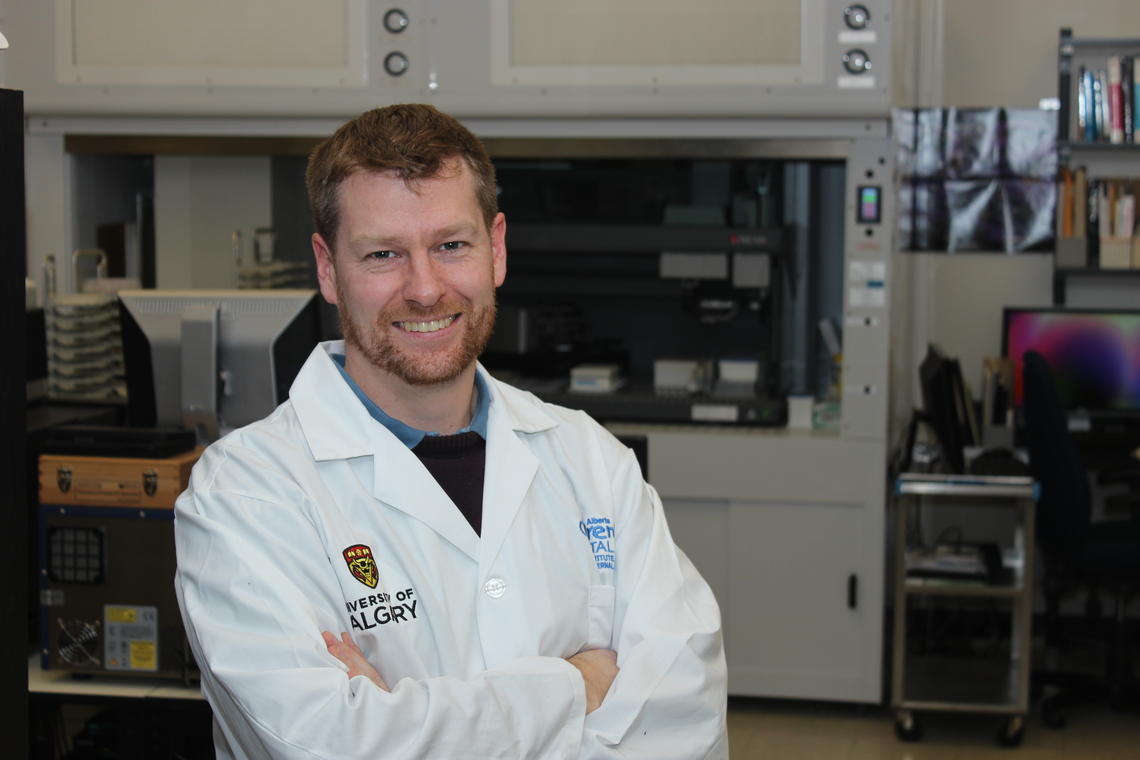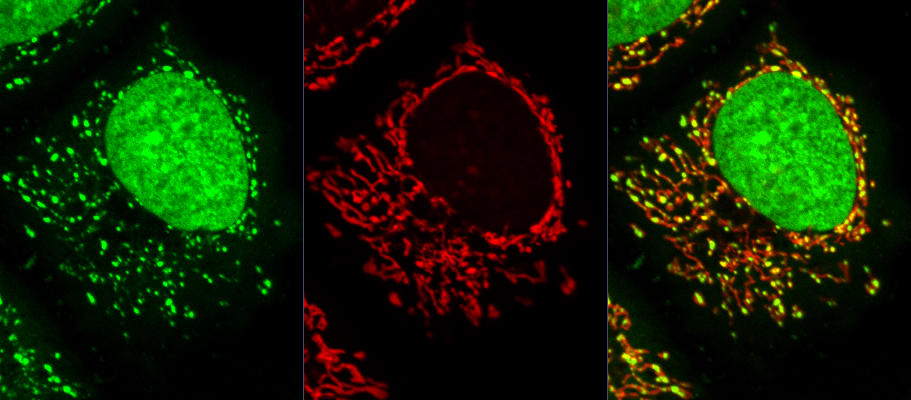April 15, 2016
Researcher seeks new treatments for childhood diseases by studying mitochondria

Shutt, PhD was recruited to be an investigator driving our understanding of mitochondria and disease
Laura Herperger
All illnesses have mystery about them, because living systems are indescribably complex. But as technologies advance, we continue to understand more about the inner workings of our own bodies, and the countless ways things can go wrong.
The University of Calgary’s Timothy Shutt, PhD, a recent recruit from Yale University, has been awarded $250,000 through the Canada Foundation for Innovation’s (CFI) John R. Evans Leaders Fund (JELF) for his work to understand childhood diseases.
“Talented scholars like Tim Shutt make possible new and improved treatments for childhood conditions,” says Ed McCauley, vice-president (research). “This support from the Canada Foundation for Innovation will elevate Dr. Shutt’s capacity for important discoveries that will inform better health outcomes for children.”
Seeking therapeutic approaches to help mitochondrial disease patients
Shutt’s research focuses on mitochondria, the essential parts of the cell that function primarily to produce energy for supporting life. When mitochondrial function is impaired, it can play a role in childhood autism spectrum disorder, epilepsy, and the ongoing effects of traumatic brain injury.
Shutt is providing insight into both the unidentified, and identified, disease genes responsible for these kinds of impairments at the Metobolic Disorders Clinic at the Alberta Children’s Hospital. By integrating basic and clinical research, he hopes to translate his findings into novel therapeutic approaches to help mitochondrial disease patients.

Fluorescence microscopy of a human epithelial cell showing mitochondria (red) and DNA (green).
Award will help to equip lab with latest microscopy technology
He is gaining these insights by following the maxim, "seeing is believing," and by acquiring the latest technology to study mitochondria with unprecedented spatial and temporal resolution. Shutt plans to use his research award to equip his lab with state-of-the-art, super resolution microscopy and tissue culture capabilities. The ability to visualize mitochondria in living cells with as much resolution as possible is essential to understanding the mechanisms regulating their function.
“I am very pleased to receive this CFI award because it will allow us to push the field of mitochondrial research in new directions — with an eye on discovering new treatments for childhood illnesses,” says Shutt, who completed his postdoctoral research at Yale University and the Ottawa Heart Institute.
Fund is helping leading researchers pursue cutting-edge research
At a time of intense international competition, the JELF helps institutions attract and retain the very best of today’s and tomorrow’s researchers. It allows institutions to acquire state-of-the-art infrastructure, enabling their leading research faculty to undertake cutting-edge research.
Shutt is an assistant professor of medical genetics and biochemistry and molecular biology at the University of Calgary’s Cumming School of Medicine. He is part of a team of investigators in the Alberta Children’s Hospital Research Institute, driving our growing understanding of the fundamental mechanisms regulating mitochondrial DNA and mitochondrial dynamics.
The University of Calgary is uniquely positioned to find solutions to key global challenges. Through the research strategy for Infections, Inflammation, and Chronic Diseases in the Changing Environment (IICD), top scientists lead multidisciplinary teams to understand and prevent the complex factors that threaten our health and economies.
